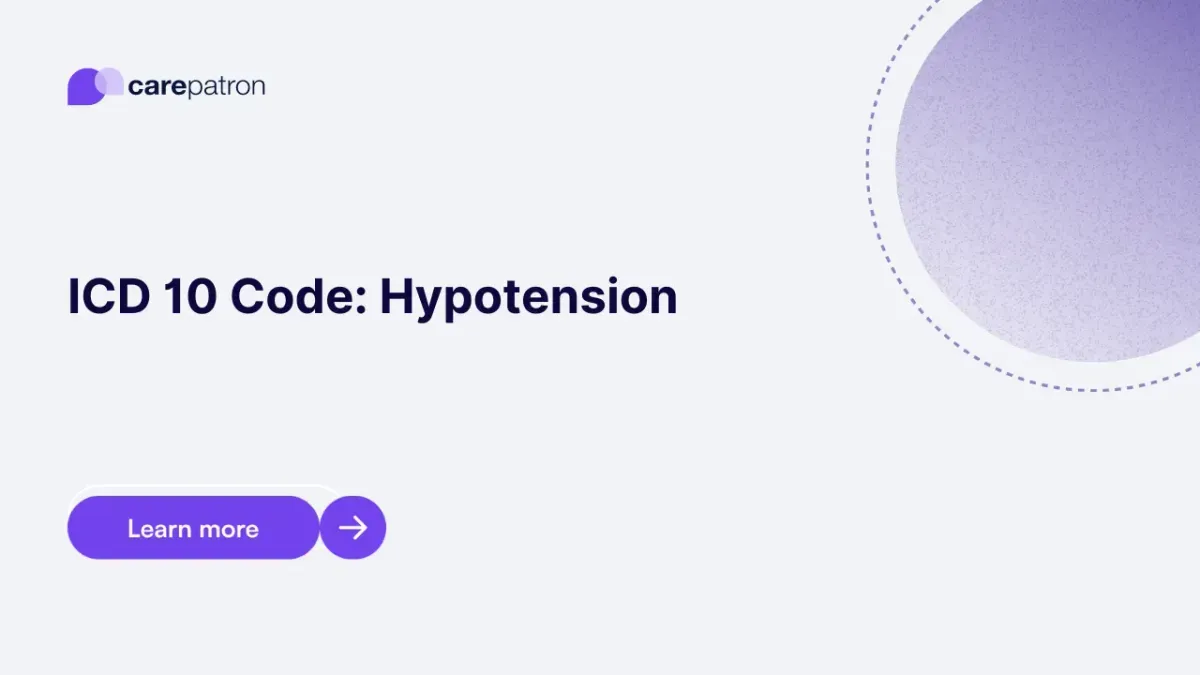
Hypotension ICD-10-CM Codes | 2023
Explore ICD-10 codes for hypotension - an essential resource for accurate diagnosis and billing. Understand the codes used for low blood pressure conditions.
Use Code
Commonly asked questions
Use a Hypotension ICD code when documenting low blood pressure due to specific causes or conditions in medical records.
Yes, specific hypotension diagnoses are billable when supported by clinical documentation and by insurance and billing policies.
Treatments for hypotension depend on the underlying cause and may include addressing dehydration, adjusting medications, managing underlying conditions, and increasing fluid and salt intake.
EHR and practice management software
Get started for free
*No credit card required
Free
$0/usd
Unlimited clients
Telehealth
1GB of storage
Client portal text
Automated billing and online payments
